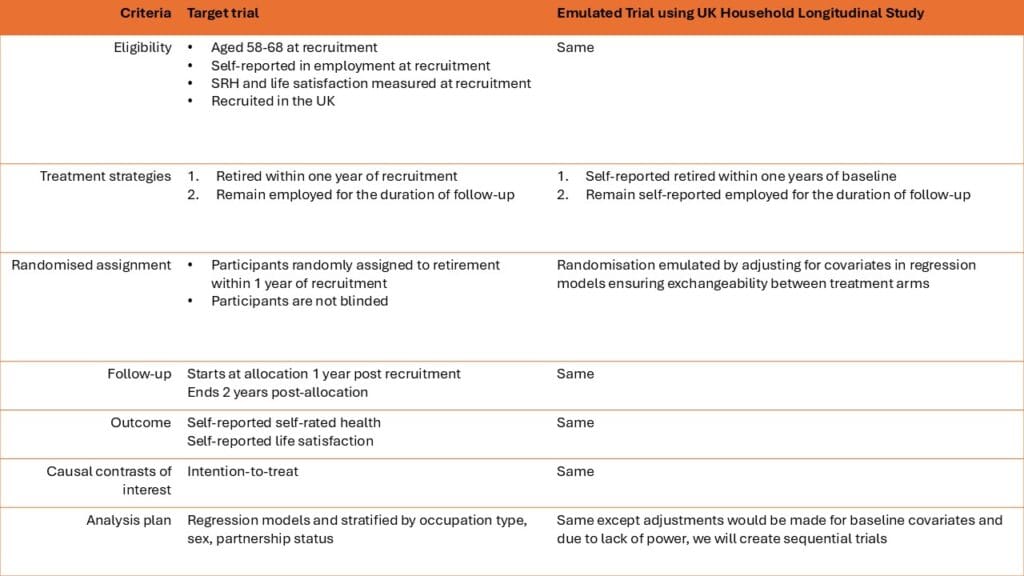Mental Health
A target trial emulation of retirement and self-rated health and life satisfaction in the UK Jane Maddock* Jane Maddock Jacques Wels Snehal Pinto Piera Neil Davies Praveetha Patalay
Background: It is unclear whether retirement affects self-rated health or life satisfaction, partly due to challenges in assessing causality. We conducted a target trial emulation to explore this relationship in a population-based study in the UK.
Methods: The UK Household Longitudinal Study is a representative panel study of the UK population where data is collected annually. We used data collected between 2009 and 2019. Figure 1 outlines the criteria for our target trial. Our eligible sample includes those aged 58-68 years self-reporting being employed at recruitment. Self-rated health and life satisfaction were assessed via questionnaire. Higher self-rated health scores indicated poorer health, while higher life satisfaction scores reflected greater satisfaction. Treatment was defined as self-reporting retirement within a year of recruitment or remaining employed for a follow-up period of 2 years. We emulated this trial using sequential trials and intention-to-treat analyses using robust regression models and adjusting for trial cohort and baseline confounders (age, sex, ethnicity, partnership status, education, household income, occupational social class, mental and physical health). In sensitivity analyses, we stratified by occupation type, sex and partnership status.
Results: Out of a total of N=10,997 pooled observations, 14% (N=1,515) retired. We found little evidence that retirement affected self-rated health. However, among those with no partner at baseline, those who retired had slightly worse self-rated health (0.15 (95%CI:0.03, 0.26)). Retirees’ life satisfaction increased (0.11 (95%CI:0.06,0.16), different occupational and partnership status strata had similar increases.
Conclusion: In a UK population aged 58-68, retirees had a small improvement in life satisfaction but similar self-rated health to non-retirees up to 2 years post-retirement. We will repeat these analyses using representative data from the US and Germany to test external validity.

